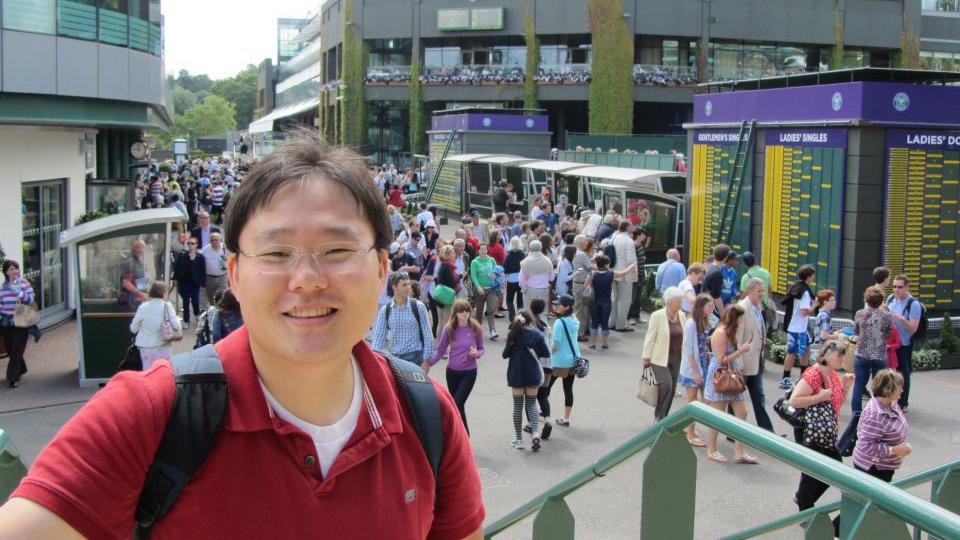When Dan Kim, a Cambridge University PhD candidate, received a calling from his ward bishop to serve as the president of the young men’s organization of their British ward (congregation), he described his reaction succinctly: “Naturally I was terrified.” Questions over how he would dedicate the necessary time in his schedule — which included obligations as a doctoral student, lecturer and editor of an academic journal, to name a few — to the demanding position, and more personally, whether he was sufficient to the task of teaching and mentoring the group of youth ages 12-18, caused initial trepidation. But Kim explains, “The bishop assured me that he had great faith in me and that the calling came from the Lord. I accepted the calling and prayed that the Lord would somehow make me equal to this great task.”
| Dan Kim, a Cambridge PhD student, juggles academic, professional, and personal responsibilities as Young Men’s president in his Cambridge, England ward All rights reserved. |
And the task was indeed great: it involved planning carefully prepared lessons, firesides (special sermons or presentations for youth outside the normal Sunday schedule) and weekly activities and even providing personal tutoring, summer camp fundraisers, sports activities and regional events with other congregations — not to mention the half-hour bike rides to the weekly 7:30 a.m. Sunday meeting to discuss the young men’s needs and progress with the bishopric and other Church leaders. In the midst of all these activities for the young men, Kim sought to establish a spiritual foundation: “My hope and prayer during my time as the Young Men president was to encourage them to trust in God, live worthy of the blessings of the gospel and reach their full potential in the Church and the world with the Lord’s help. Our continuing theme was that God can make much more of us than we can ever hope to be by ourselves.”
The fruits were rewarding. Now a Sunday School teacher, Kim misses some of the calling’s enriching and growing moments — the youths’ earnest spiritual questions, the spiritual development he witnessed as they put into practice doctrines that were taught, the hours devoted to helping them master their academic material and witnessing their successes and the delight of their families. Kim expressed gratitude for the friendships formed with the youths’ families: “The life of a graduate student studying in a foreign country can be a lonely experience,” explained Kim, who hails from South Korea. “Yet the families of the young men saw how much I cared for their sons and in turn treated me as if I was a member of their own families. I will always be grateful for the blessings that came from my Church callings.”
The experience was not without its sacrifices: the intense time commitment of his calling required some prioritization to maintain his academic responsibilities, as well as a long-distance relationship with his girlfriend in the United States. Sometimes it required simply dropping other interests, like his spot on the college rugby team. Yet Kim concludes that “even though the calling was demanding, I gained much more than I gave to the calling, and I learned more from the young men than I taught them. I will forever be grateful for the friendships I have formed with the young men, their parents and other leaders of the ward who cared deeply about every youth in the ward.”

